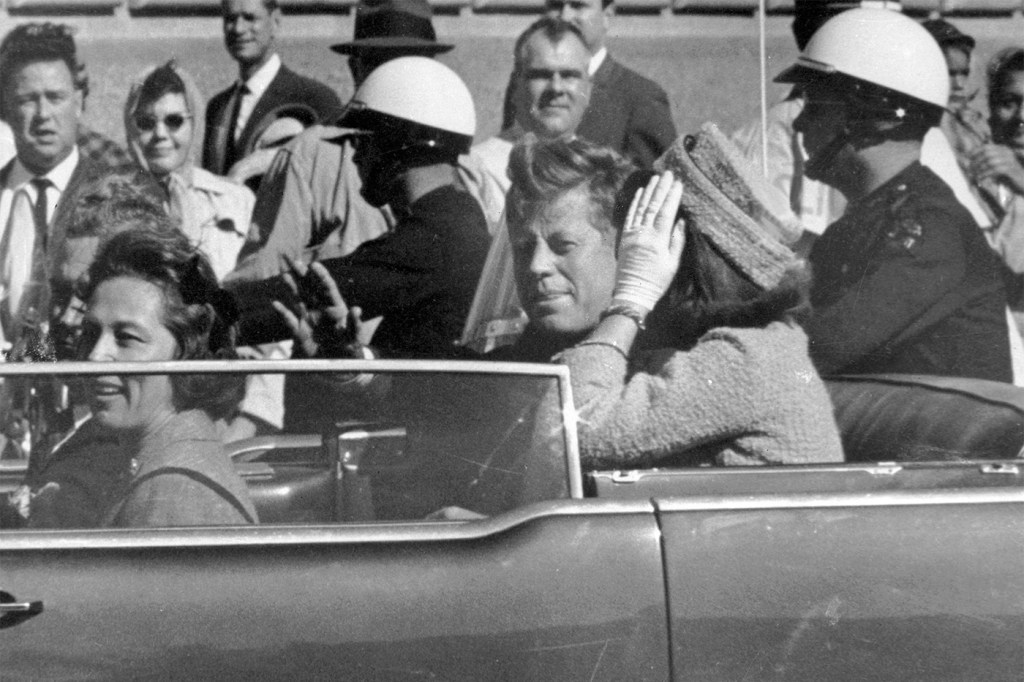Trump assassination attempt is another example of political violence happening when the nation is ‘on the cusp’ of change, experts say
Assistant teaching professor Peter Fraunholtz said many assassinations and attempts have happened when the country’s political center was weakened, as it is now.

When Thomas Matthew Crooks fired an AR-style rifle at former President Donald Trump during a campaign event in Pennsylvania on July 13, it was the first public presidential-level assassination attempt the United States has seen since a gunman shot at then-President Ronald Reagan in 1981.
There have been at least 15 acts of political violence targeting U.S. presidents and presidential candidates, according to the Washington Post, with five of these incidents resulting in death. This includes the killing of Sen. Robert F. Kennedy in 1968 while on the campaign trail.
While each assassination and assassination attempt in history has differed, Peter Fraunholtz, assistant teaching professor in history and international affairs at Northeastern University, said there is a pattern of attempts taking place when a country’s political center is in a threatened or weakened state.
“With Lincoln, we were on the cusp of a defeated South and the end of the Civil War,” Fraunholtz said. “With Kennedy, both the Cold War globally and Civil Rights domestically were up for grabs and whether we were going to Vietnam was a big question. We’re on the cusp now of a fairly significant choice. Being on the verge of a big generation change … is really significant. It produces people that are eager and enthusiastic and it produces people that want to defend the status quo because they don’t really see the change that’s imminent as being in the best interest of the country.”
Authorities are trying to determine what motivated Crooks. Some assassins are looking to get attention; Reagan’s shooter was trying to impress actress Jodi Foster. Fraunholtz says it’s difficult to know whether this was a political act by Crooks. But the political climate now, he says, is similar to that of 1968 when Robert Kennedy was assassinated.
The 1960s saw advances in civil rights, women’s rights and the counterculture movement. There were protests against the Vietnam War and a change in values that many young people, women and people of color supported, Fraunholtz says. This led to the election of Richard Nixon, who Fraunholtz described as the “law-and-order” candidate.
“In 1968, the center was collapsing,” he added. “Nixon won because a significant portion of the population was supportive of the war and was really afraid of the counterculture and the way things were changing during the ’60s. The status quo was really being shaken on so many different levels.”
This is similar to the current state of the country today, Fraunholtz says.
“The country has changed so radically, and yet there’s a portion of the country that is really anxious about the way that the country’s becoming more diverse. It’s no longer a predominantly white, Christian, heteronormative culture anymore. It is really disturbing to a lot of people. … That desire for stability and law and order, it’s alive and well.”
Featured Posts
“There’s still a lot of potential in my mind for a lot more violence than we have seen,” he adds.
Colin Brown, an associate teaching professor of political science at Northeastern University, says he thinks that the possibility of widespread, organized political violence is slim, but “there has always been a baseline level of political violence at the local level,” especially against marginalized communities.
“There has been a significant increase in the number of threats against public officials and candidates at all levels,” Brown adds. “As the election approaches, particularly if there are signals of even implicit support from political elites, the likelihood of those threats being acted on seems like it will increase. The threshold that someone has to cross before actually committing violence is pretty high, and so the vast majority of threats won’t turn into violence nor will it be something that most people encounter directly. But if the rate goes up by some percentage, as I expect it will, that’s probably going to be very visible and alarming, especially in a tense and polarized cultural moment.”
While the shooting at Trump’s rally is dominating the media cycle now, Fraunholtz says that political violence seemingly had little impact on American elections in the past. When Robert Kennedy was shot, it wasn’t a given he would go on to win both the nominatio and the presidency. Presidential candidate George Wallace was shot while campaigning in 1972, but Fraunholtz says it wasn’t clear that the incident, which left Wallace paralyzed, contributed to Nixon’s win.
Brown says that while the effect of violence on elections varies, he does not believe it will sway voters.
“It’s very unlikely that even this changes the election outcome significantly, but any political violence is unhealthy for democracy,” he says. “Any even low-level increase is a bad sign for it, at least as a symptom and at some point as a cause of democratic erosion itself. And like all violence, each incident is an unnecessary tragedy in and of itself.”
What acts of violence can do is generate sympathy. When President John F. Kennedy was shot and killed in 1963, his vice president, Lyndon B. Johnson, took over for him and received “a fair amount of goodwill,” Fraunholtz says. Johnson framed himself as carrying out the late president’s agenda, a strategy that helped his cause.
Whether Trump will receive the same sort of sympathy will likely depend on the way he acts in the coming months leading up to the election, says John Portz, professor of political science at Northeastern.
“Indications are he’s taking this very broad perspective to unite the country,” Portz says. “He’s someone who tends to have a more divisive orientation. … If he does take that broader perspective, it probably will help him out. It’s not the assassination attempt, but how it impacts him.”











